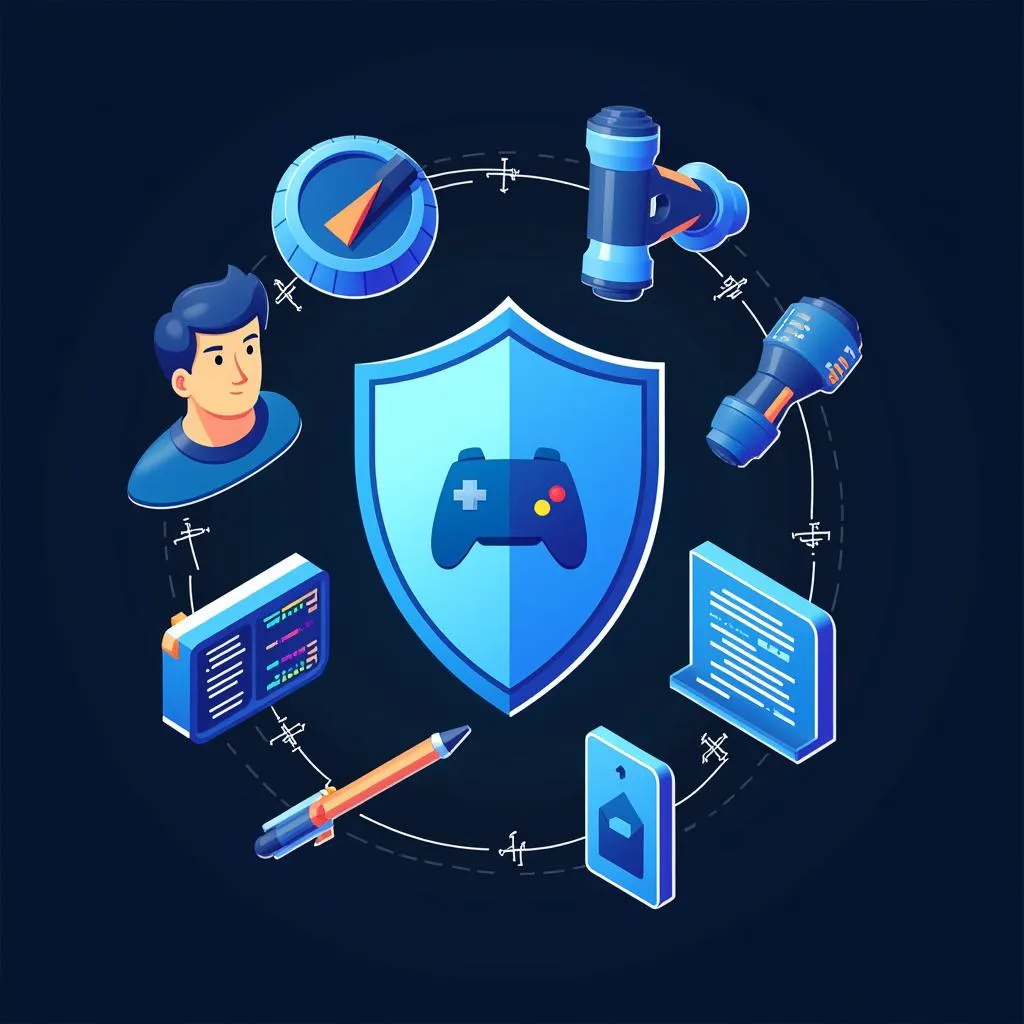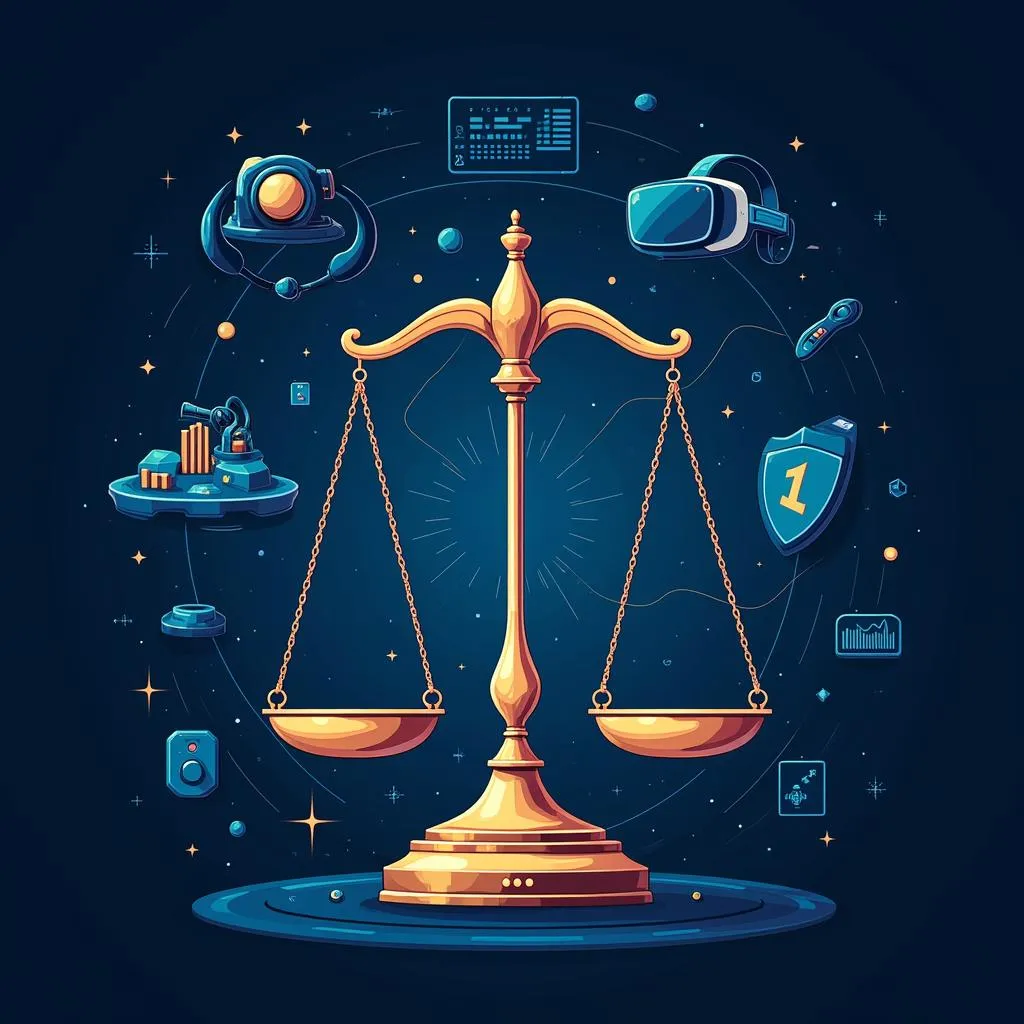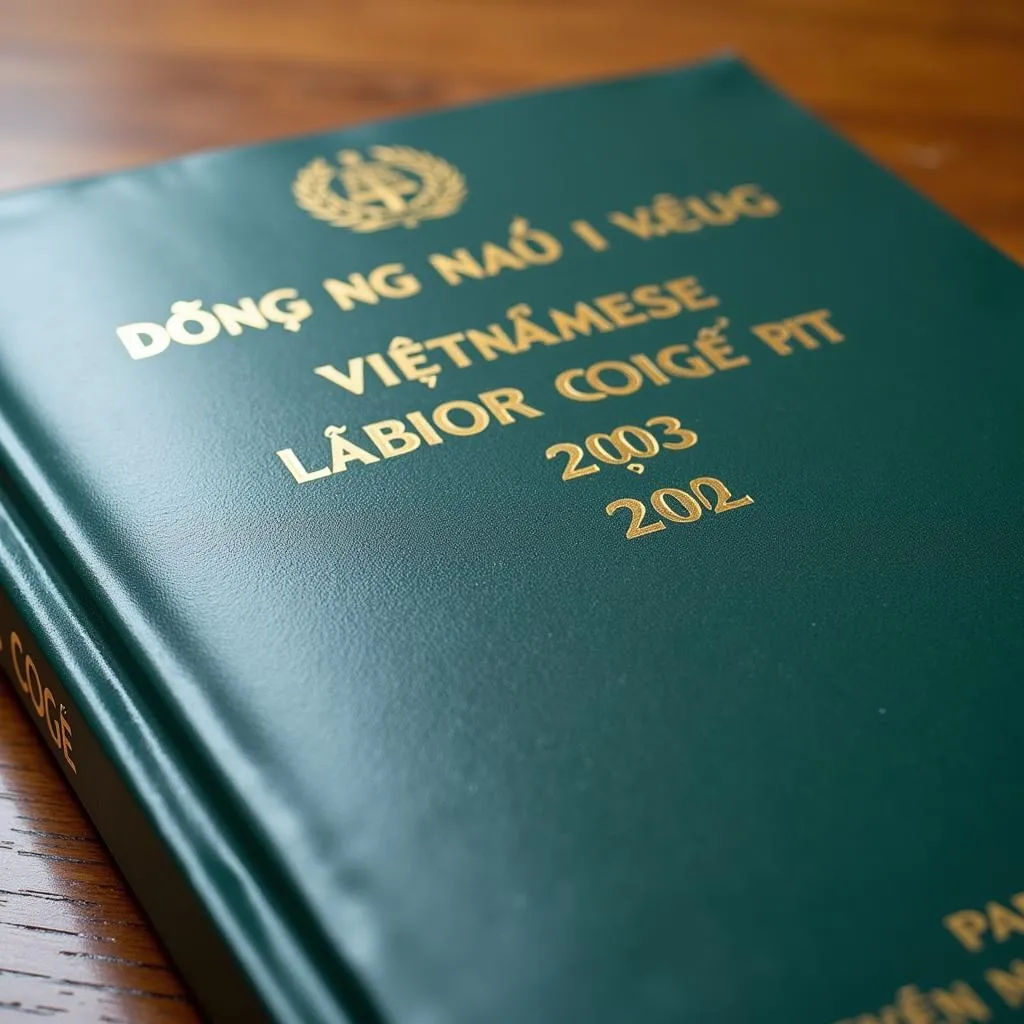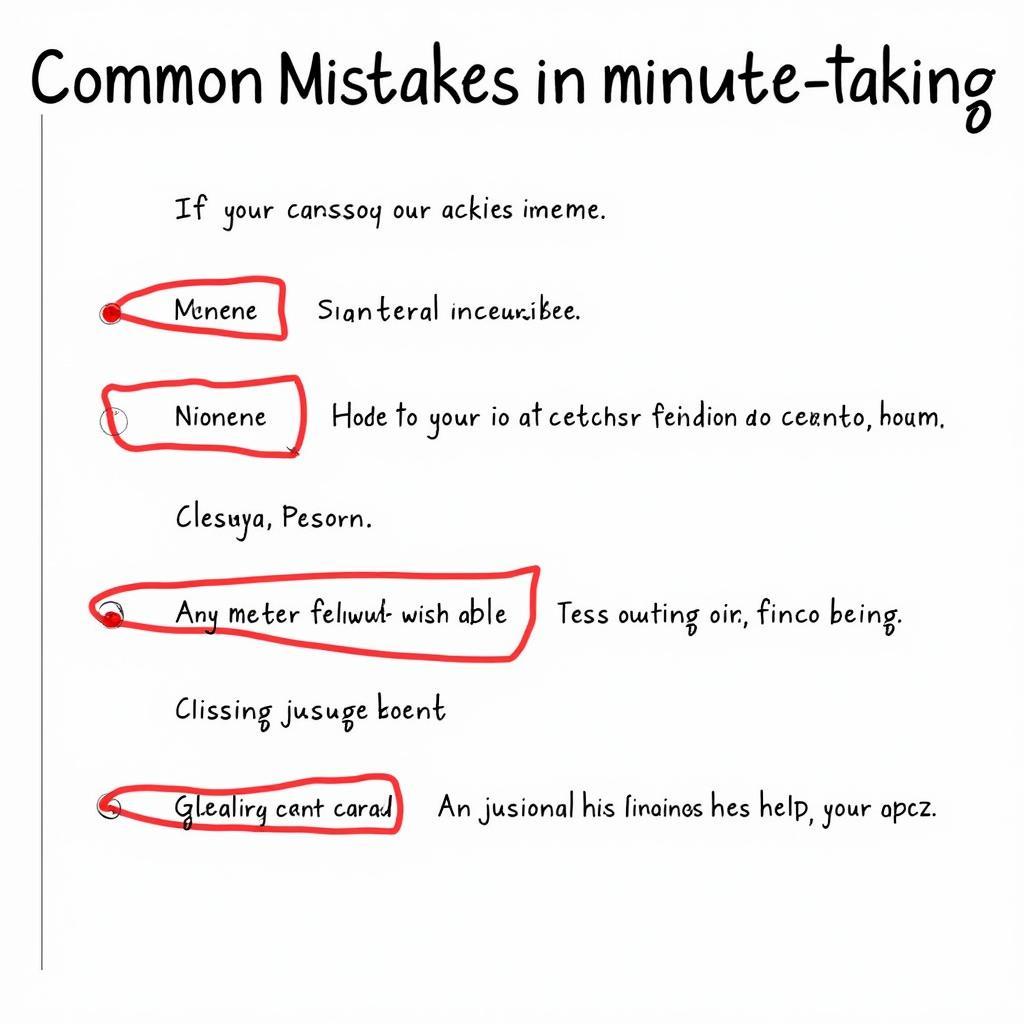
Demystifying “Ban Hanh Luật” in English: A Guide to Game Law
The world of gaming, while seemingly all fun and games, operates under a complex legal framework. “Ban hanh luật”, which translates to “law promulgation” in English, plays a crucial role in shaping this landscape. This article dives deep into the significance of law promulgation in the context of gaming, providing clarity and insights for both gamers and industry stakeholders.
Understanding “Ban Hanh Luật” in the Gaming Industry
“Ban hanh luật” refers to the process by which legal documents, specifically laws and regulations, are formally created and enacted. In the gaming industry, these laws govern various aspects, from intellectual property rights to content regulations, advertising standards, and consumer protection.
Why is “Ban Hanh Luật” Crucial for Gaming?
The gaming industry is dynamic and constantly evolving, with new technologies and trends emerging regularly. This rapid evolution necessitates a robust legal framework to:
- Protect Intellectual Property: Game developers invest significant resources in creating unique characters, storylines, and game mechanics. “Ban hanh luật” ensures protection of these valuable assets through copyright and trademark laws.
- Ensure Fair Play and Competition: Laws prevent cheating, fraud, and unfair practices within games and esports, ensuring a level playing field for all participants.
- Safeguard Players: Regulations concerning age ratings, in-game purchases, and data privacy protect vulnerable demographics and promote responsible gaming practices.
- Facilitate Industry Growth: A clear and predictable legal environment fosters innovation, attracts investment, and enables the gaming industry to thrive.
Key Areas of “Ban Hanh Luật” in Gaming
Let’s explore some specific areas where law promulgation plays a vital role:
1. Intellectual Property Rights
- Copyright Law: Protects the expression of ideas in tangible forms like game code, music, and artwork.
- Trademark Law: Safeguards distinctive brand names, logos, and other identifying marks associated with games.
- Patent Law: Offers protection for new and innovative technological inventions in the gaming realm.
 Intellectual Property Protection in Gaming
Intellectual Property Protection in Gaming
2. Content Regulation
- Age Rating Systems: Classify games based on their suitability for different age groups, protecting minors from inappropriate content.
- Content Restrictions: Regulate or prohibit certain types of content, such as extreme violence, hate speech, or gambling, within games.
- Advertising Standards: Govern how games are marketed, particularly to children, ensuring ethical and transparent advertising practices.
3. Consumer Protection
- In-Game Purchases: Regulate loot boxes and other forms of microtransactions to prevent predatory practices and protect consumers, especially young players.
- Data Privacy: Ensure the responsible collection, storage, and use of player data by game companies, complying with relevant data protection laws.
- Accessibility: Promote the development and availability of games that are accessible to players with disabilities.
The Future of “Ban Hanh Luật” in Gaming
As technology advances and the gaming landscape continues to evolve, we can expect further developments in law promulgation. Emerging areas that will likely see increased legal scrutiny include:
- Esports: Regulation of competitive gaming, player contracts, sponsorship deals, and the use of virtual assets.
- Virtual Reality (VR) and Augmented Reality (AR): Addressing new legal challenges related to user safety, privacy, and the blurring lines between the virtual and real worlds.
- Blockchain Technology and NFTs: Establishing legal frameworks for the use of blockchain technology, cryptocurrencies, and non-fungible tokens (NFTs) within games.
 The Future of Game Law
The Future of Game Law
Conclusion
“Ban hanh luật” is not merely a bureaucratic process but a vital force shaping the gaming industry. By understanding the key areas of law promulgation, gamers and industry players can navigate this complex landscape more effectively. As the gaming world continues to grow and innovate, a proactive and adaptable approach to lawmaking will be essential to ensure a fair, safe, and thriving gaming ecosystem for all.




